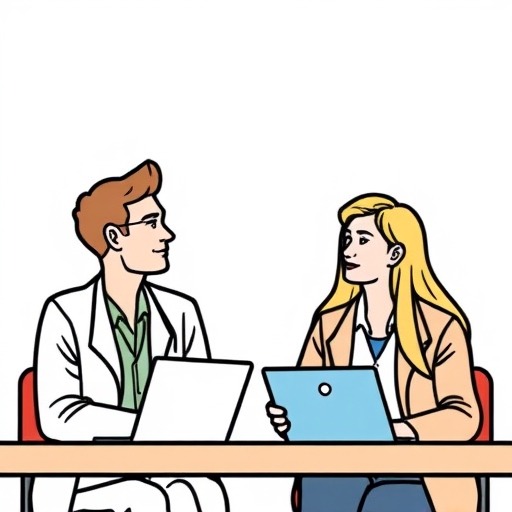Can College Professors Date Students?
The question of whether college professors can date students is a complex one, fraught with ethical dilemmas, power dynamics, and institutional policies. As higher education institutions strive to maintain academic integrity and a professional learning environment, the implications of such relationships can be significant. In this article, we will explore the legal, ethical, and emotional dimensions of professor-student relationships, the policies in place at various institutions, and the broader societal implications.
Understanding the Power Dynamics
The Professor-Student Relationship
The professor-student relationship is inherently unequal. Professors hold significant power over students, not just in terms of grades, but also in mentoring, recommendations, and career opportunities. This power dynamic can complicate any romantic relationship that might develop.
Key Points of Power Dynamics:
- Authority: Professors have control over academic evaluations.
- Influence: Professors can affect a student’s career trajectory.
- Vulnerability: Students may feel pressured to enter a relationship due to fear of academic repercussions.
- Consent Issues: The ability to give genuine consent can be compromised due to the inherent power imbalance.
- Peer Relationships: Other students may feel uncomfortable or believe the student in the relationship is receiving favoritism.
- Reputation Risks: Both parties can suffer reputational damage, impacting future professional opportunities.
- Prohibition of Relationships: Many institutions outright ban relationships between professors and undergraduate students.
- Disclosure Requirements: Some schools allow relationships but require faculty to disclose the relationship to their department chair or human resources.
- Recusal from Evaluation: Faculty members may be required to recuse themselves from grading or evaluating a student with whom they are in a relationship.
- Professionalism: Professors are expected to maintain a level of professionalism that should not blur into personal relationships.
- Exploitation Risk: Vulnerable students may be exploited due to their desire to succeed academically or professionally.
- Trust Erosion: Romantic relationships can erode the trust that students have in the educational system.
- Sexual Harassment Claims: Relationships can lead to claims of harassment, especially if one party feels pressured into the relationship.
- Title IX Violations: Institutions may face legal challenges under Title IX if they fail to take appropriate action regarding relationships that create a hostile environment.
- Cultural Norms: Different societies have varying views on age differences and power dynamics.
- Media Representation: Television shows and movies often romanticize such relationships, which can skew public perception.
Emotional Implications
The emotional aspects of dating within such a power structure can lead to complications:
Institutional Policies on Relationships
Most colleges and universities have specific policies regarding romantic relationships between faculty and students. These policies are designed to protect students and maintain the integrity of the educational environment.
Common Policy Components
Example Policies from Various Institutions
| Institution | Policy Type | Description |
|---|---|---|
| Harvard University | Prohibition | No relationships with undergraduates. |
| University of California | Disclosure Required | Must disclose relationships to HR. |
| Yale University | Prohibition for Undergraduates | Faculty cannot supervise students they are dating. |
| Stanford University | Conditional Disclosure | Relationships allowed with disclosure and recusal. |
Ethical Considerations
Ethical Implications of Dating Students
The ethical considerations surrounding professor-student relationships extend beyond institutional policies. They encompass questions of morality, professionalism, and the potential for exploitation.
Key Ethical Considerations:
The Role of Ethics Committees
Many institutions have ethics committees that evaluate claims of misconduct, including inappropriate relationships. These committees can provide guidance on best practices and help enforce policies.
The Legal Aspect
Legal Ramifications
In some cases, relationships between professors and students can lead to legal action, particularly if allegations of harassment or coercion arise.
Potential Legal Issues:
Case Studies
1. Case of Professor X: A professor at a state university was dismissed after a student filed a harassment claim, arguing that their relationship was never consensual due to the power imbalance.
2. Case of Professor Y: A faculty member at a community college was allowed to continue their relationship with a graduate student, provided they recused themselves from grading and advising.
Societal Perspectives
Public Opinion on Relationships
Public opinion on the subject of professor-student relationships is often divided. Some view it as a personal choice, while others see it as inherently problematic due to the aforementioned power dynamics.
Factors Influencing Public Opinion:
The Impact of Social Media
Social media has transformed how relationships are perceived and discussed. The visibility of relationships can lead to public scrutiny and backlash, affecting both parties involved.
Conclusion
The question of whether college professors can date students is not straightforward. While some institutions may allow such relationships under specific circumstances, the inherent power dynamics and ethical implications make them problematic. It is crucial for both professors and students to consider the potential consequences of their actions on their academic and professional lives. By adhering to institutional policies and maintaining a strong ethical framework, both parties can navigate this complex issue more effectively.
FAQs
1. Are all college professors prohibited from dating students?
No, policies vary by institution. Some colleges have strict prohibitions, while others allow relationships with certain conditions.
2. What should a student do if they feel pressured into a relationship with a professor?
Students should report their concerns to a trusted faculty member, advisor, or the institution’s human resources department.
3. Can a professor be fired for dating a student?
Yes, depending on the institution’s policies and the circumstances surrounding the relationship.
4. How can institutions ensure that professor-student relationships are ethical?
Institutions can implement clear policies, provide training on power dynamics, and establish reporting mechanisms for students.
5. Is it ever acceptable for professors to date students?
While some institutions allow it under specific conditions (like recusal from grading), it remains a controversial and sensitive topic.
By understanding the complexities of professor-student relationships, both students and faculty can navigate this sensitive terrain with awareness and caution.





